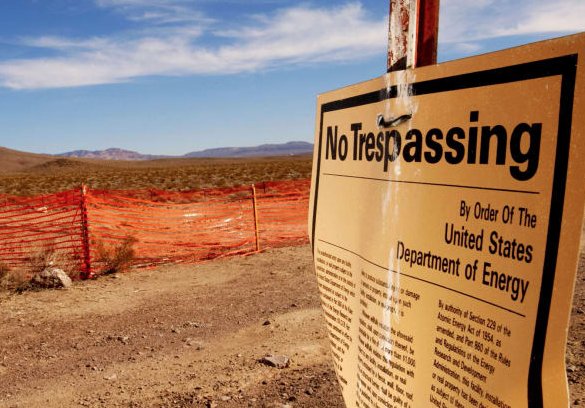Introduction:
This source is a New York Times article, dated May 10, 2011, by Hannah Northey of Greenwire, entitled GAO: Death of Yucca Mountain Caused by Political Maneuvering. As the title suggests, the author proposes that the demise of the Yucca Mountain Project (YMP) was based on political wrangling, not issues of safety, cost, or approach. “The Obama administration did not provide a technical or scientific basis for shutting down the site and failed to plan or identify risks associated with its hasty closure, which could hinder the Energy Department if the Nuclear Regulatory Commission or lawsuits prompt the agency to revive the project, the (GAO) report said,” according to the author.
Part 1:
The author’s arguments are based on the GAO’s findings and political maneuverings by the Obama administration. First, the “decision to terminate the Yucca Mountain repository program was made for policy reasons, not technical or safety reasons;” second, the author notes that the report “estimated that the termination of Yucca Mountain could set back the opening of a new geologic repository by at least 20 years and cost billions of dollars;” and third, “House lawmakers are investigating whether NRC Chairman Gregory Jaczko stalled the decision (a policy decision on whether the commission will uphold NRC’s Atomic Safety and Licensing Board’s decision that the government cannot pull its application for Yucca Mountain) to politically protect his former boss, Senate Majority Leader Harry Reid.”
Part 2:
The author makes some salient points by noting the GAO’s findings as well as the political environment at the time. She’s quick to note the speed with which the decision to close Yucca Mountain was initiated, seemingly moments after President Obama took office. One point she didn’t mention, was that the Nuclear Waste Policy Act (NWPA) – voted into existence by Congress – framed, even dictated the foundation of the YMP, yet this legislation was all but ignored by the administration. Overall, I found the article to be rather persuasive.
Conclusion:
The closure of Yucca Mountain was purely political. Funding was essentially guaranteed by the NWPA, no safety or technical objections were cited, and the project was nearing the completion of a major milestone, licensing. For Nevadans, the termination of this project was rationalized with emotional dialogue and half-truths, leaving much of the public against the project. Despite the thousands of jobs and millions of dollars in lost revenue, Nevada’s leadership failed to consider what was best for the state, and the Nation, further denying its residents the opportunity to write one of the final chapters in the history of nuclear power production in the U.S.
